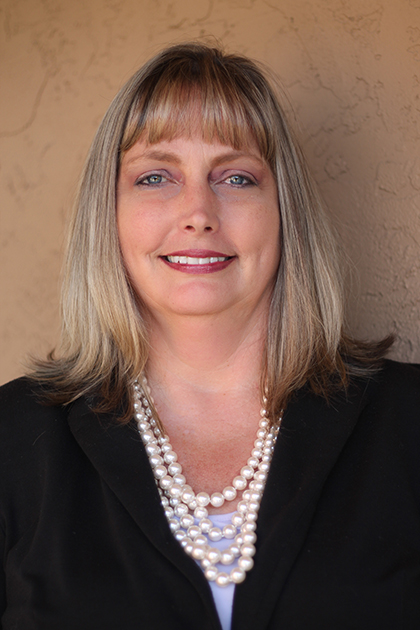

For Denise L. Lauderbaugh, MPH, BSRT, RRT, RRT-NPS, the decision to pursue a career in respiratory care was born out of tragedy. She started out in health care as a CNA and was pursuing a nursing degree when her infant son passed away from sudden infant death syndrome.
“I wanted to be able to save the lives of other people’s children, and if I was not able to save them, then at least make the time they had with their children memorable and happy,” said the author of one of ten abstracts chosen for the prestigious Editors’ Choice session during the OPEN FORUM at AARC Congress 2018.
Given her own experiences with her son, respiratory care seemed like the perfect fit, and today she is the NICU respiratory educator at Rady Children’s Hospital-San Diego in San Diego, CA.
She also serves as chair of the Evidence Based Practice and Research Council, a position that has helped fuel her passion for research.
Lots of support
“What I love most about my workplace is the complete support of my growth and career development by our director and senior management,” she said. “What I love the most about my job is encouraging staff to grow and learn how to make a difference in the lives of others as well as clinical practice. My desire is to spread my passion for the absolute best care of the patient to others.”
Lauderbaugh says she first became aware that RTs could conduct clinical research when she was working in Ohio at Rainbow Babies and Children’s Hospital and the Cleveland Clinic Hillcrest facility. Research is a big part of the RT world in those facilities and she caught the bug.
But it wasn’t until she came back to California and Rady Children’s that opportunity really knocked for her to get directly involved.
“They offered me the opportunity to attend the nursing evidence-based practice consortium where I learned the process of EBP and research,” Lauderbaugh said. “Immediately following that project I heard about a research opportunity funded by the Ellen Browning Scripps Foundation through my institution.”
She was specifically interested in exploring an area of noninvasive ventilation where the evidence was lacking, and since her hospital provides nurse scientists and statisticians to help bedside clinicians with research, she knew she would receive the support she would need to embark on the project.
Tackling pressure injuries
“I had noticed some BiPAP patients who had to be reintubated due to pressure injuries, and at the same time reduction of device related pressure injuries was our number one operational plan goal,” Lauderbaugh said. “I knew as a respiratory therapist not to strap the mask too tight, but I also felt pressure injuries could occur due to sheer and moisture if left too loose.”
She thought a correlational study would be the best way to find out if the leak was a possible factor and decided to focus her study on that issue.
The result was the Editors’ Choice abstract, Noninvasive Ventilation Device-Related Pressure Injury in Pediatrics: A Correlation Study.
Lauderbaugh says the best part of research for her is answering a question she’s always wanted to answer and helping patients at the same time.
“I have always been a curious person, so getting answers that have a direct impact on improving patient care is a dual reward,” she said.
Earning the respect of colleagues inside and outside of the respiratory care profession means a lot too, and it opens the door to collaborative efforts that she believes can end up impacting patient care even more than when one discipline goes it alone.
One great tip
Lauderbaugh has this tip for other RTs who might like to take the research plunge —
Find a mentor. Then be a mentor. Then mentor a mentor. It’s a cyclical process. In order to grow new knowledge, we need many therapists who know the process. The ideas come easy. The process of translating those ideas into a well-designed study, getting IRB approval, collecting data, analyzing data, writing the abstract, making a poster, and then writing a manuscript can be accomplished alone but are so much easier with a mentor to guide you.





